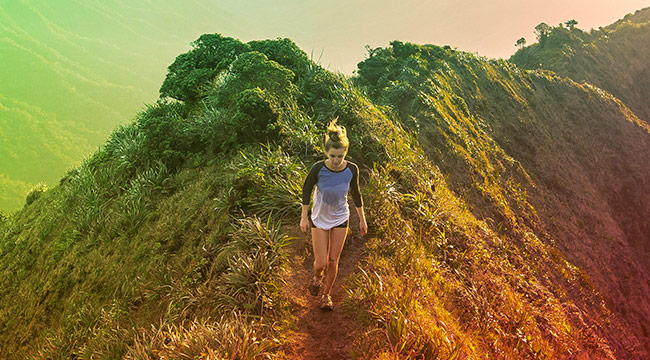
Most dystopian fiction is set in a future that’s vaguely menacing, but still far enough away that descriptions of “the ruined Rocky Mountains” and “blasted New York Skyline” are alarming without causing too much discomfort.
“Yes,” we tell ourselves, “at some point, resources will become so finite that even middle-class Americans will begin to feel the pinch. And yes, it’s possible that we’ll one day send poor teens into arenas to fight for the glory of their districts. But not yet. We’re still okay.”
But are we? Since electing a president who believes that global warming is a hoax perpetrated by China, we’ve seen EPA rollbacks, the Standing Rock and Keystone pipelines have been fast tracked, the Parks Services is under fire, and Rick Perry is leading the Energy Department.
Our world is not yet the bleak landscape that launches successful movie trilogies, but we’re moving in that direction at an alarming pace. And that’s exactly why we no longer have the choice to stand by, idly complacent and hoping that someone else — some ecological group, or a politician — will fix our problems. It’s on us.
So what can you do? Uproxx spoke with Evan Marks — founder of The Ecology Center — about how we can continue thriving without killing the planet. Marks’ first bit of advice? It’s time to step away from your Snapchat.
Move past the digital

For many of us, it feels like sharing a meme or urging others to sign a change.org petition counts as civic involvement. Sure, we’d like to do something more for the environment, but we’re all so busy. Sometimes the idea of actually getting involved in a beach clean-up sounds dreadfully boring, especially when it’s easier to just cosign movements via social media.
Marks sees right through this. He believes real participation is what it’s all about.
“Our work is really about engaging people to participate,” he says, “so I think ultimately it’s probably unplugging the phone, putting your hands in the soil, and just becoming a citizen on this global planet.”
That “putting your hands in the soil” bit is both literal and figurative. On one hand, Marks would love it if you chucked your computer for a few hours and did something tangible. On the other hand, it’s also about “doing the work” — taking a measure of the situation and playing closer attention to your own behavior.
“What are you passionate about?” Marks asks. “That’s the starting place for all positive actions. Are you passionate about food? What does that mean? Do you want to grow a garden? Do you want to support local farmers and shop at a farmers’ market? Do you want to learn to cook and eat delicious, lovely, local, seasonal food? Put that passion to work. Be an activist.”
Of course, social media is where movements start — no one is saying it’s completely worthless. But Marks points out that attempts to raise consciousness on digital platforms, among people you already know, are less likely to create change than making an actual, concerted effort to do something measurable.
“When we’re young is when we should be the most vocal,” Marks says. “Stand up for what you believe in, and stand for something. Go beyond your voice and beyond your social media, because at the end of the day there’s a vacuum of nothingness there. Think about what you’re going to do in the real world and how to stand for what you believe in and stand for your passions every day. That’s the power of being a human on this planet.”
It’s a tall order. Online sharing often feels like a multi-level marketing scheme: It’s easy, but built on emptiness. Still, emptiness is attractive in a world where real change takes hard work.
“Influence is actually about making change, not about sharing something, right?” Marks continues. “Life is actually about digging in. It’s not hitting the share button or hitting the like button. Cut the digital foreplay.”
Do what’s right for you, but be conscious
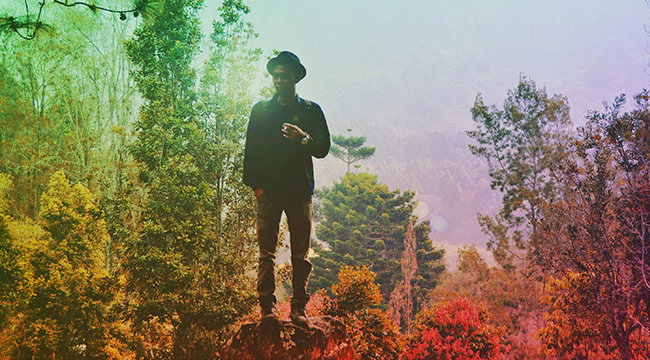
When Marks says you need to do something meaningful, he’s not saying that you need to give up spreading the word or sell all your belongings and donate the proceeds to Greenpeace. What he is saying is that all of us could make an effort to go beyond offering lip service. And that getting involved is easier than most of us think.
“Donald Trump is attacking the EPA and the environment, what are we gonna do about it?” Marks says. “Well, we do the same thing that we did with Obama — we participate. And we participate in how we consume. Every dollar we spend is a vote for something good or a vote for something bad.”
Will being more conscious take some effort? Absolutely. But we’ve come to the point in history where “I’m too lazy” doesn’t really fly. You may just be one person, but you’re one person who can make a difference in the way you participate and then alert others to the fact that they should be participating, too. That’s how we get a groundswell started…and considering that our ice caps are melting faster and faster (did you clock the temp. in Antarctica recently? The continent’s covered in lakes now), a groundswell is needed in a hurry.
Vote with your dollars
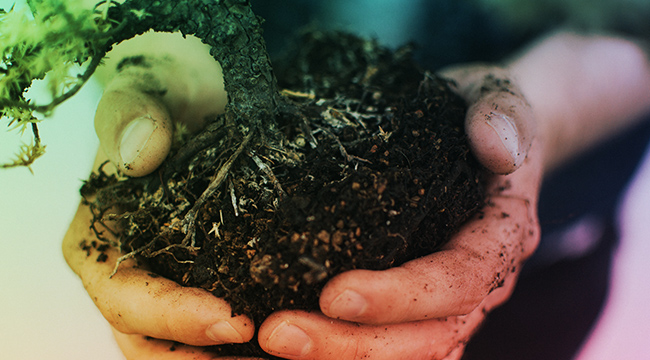
First of all, rid yourself of the notion that you must only clothe your body in hemp products and stop washing your hair (especially rid yourself of that second one). Because you don’t. Sure, a few minor conveniences may suffer when you begin paying closer attention to how you spend and use resources, but your whole life won’t change.
“Do you eat out?” Marks asks. “Okay, well why not eat out at a restaurant that might have a high ecological sensibility? Maybe you’re on a budget, so you go to Chipotle. They’re working their asses off to figure out how to source locally, organically, and GMO-free across 3,000 restaurants. Maybe you don’t want to eat a burrito and want to make something instead. Where do you buy your produce? Can you buy local produce? Can you support a local farmer? It doesn’t cost more money, and it can actually be cheaper. It’s a direct market relationship with the people who are producing your food.”
Marks says that you should always make sure that the fruits and vegetables you’re getting are coming from the farmers directly and not just from a warehouse. That makes it possible for you to support the farmer, support the environment, and push culture away from unsustainable factory farming. He suggests thinking about these tweaks as “leveling up” and urges people to do one more thing for the environment each day.
“How do we clothe ourselves?” Marks asks. “Do we gravitate towards fast fashion and create a rotating wardrobe every six weeks or do we buy something that we really appreciate that will last us for years? At the end of the day you’ve got to move beyond disposability. Let’s be empowered to expand our consciousness beyond the next minute and think what it would be like to start building a legacy where the millennials were the best generation ever. To do that, you’re going to have to start thinking differently.”
But what if you’re broke? What if you can only afford mass made disposable products? Marks suggests you consider saving up or buying second-hand. Not only will what you purchase be cheaper, but you can also be certain you’re not contributing to our wasteful culture.
Remember that this is a journey
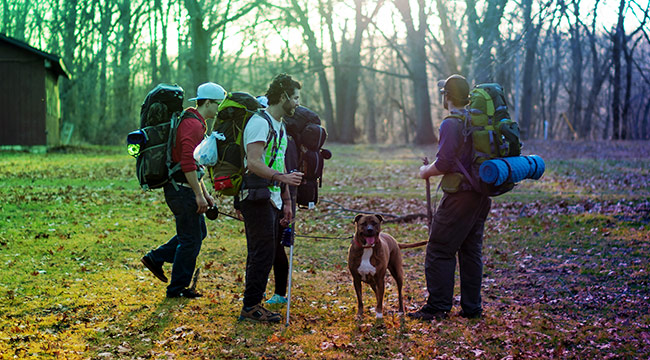
If there’s one reason the whole “save the environment” mantra is daunting, it’s because it feels like you’re either doing it or you’re not. Either your entire life is taken up by saving the whales, the manatees, and the wetlands, or you’re just some bump on a log who’s not self-aware enough to get her act together. But that kind of gatekeeping isn’t helping anyone. Even if you’re someone whose only current contribution is sharing and retweeting, you should view that as a beginning rather than a reason to throw your hands up in despair.
“We’re all at different levels,” Marks says. “Your buddy Joey, he might love the garden. He’s got herbs on his patio and he’s so passionate about that. His next step is to plant a fruit tree. That’s not crazy stuff. He spends 10 minutes outside drinking beer and he’s harvesting herbs for his barbecue. We’re not saying 0 to 60; we’re saying one step at a time. The only way to make change is if we all participate. We’re all conduits for change. It’s the people that make the world better. We all have to engage.”
How can you engage? It’s easy. Take one more step than you already have. If you’ve thought about composting but haven’t tried it, do some research. If you’re debating where to eat dinner and one choice is more friendly towards the environment than another, consider your purchasing power. If you can lower the water flow in your toilet or shower, that’s definitely a change that will help. And if you can remember to be more conscious every time you make a consumer decision, then you’re on the right track.
#Resist
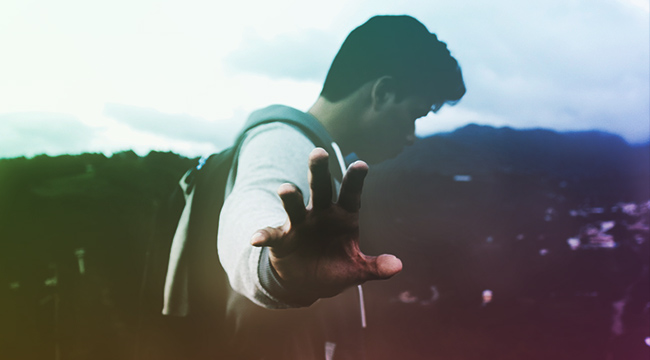
If there’s been one major theme since Donald Trump took over as president, it’s “resistance is now more important than ever.” But how can you resist when it comes to the environment? According to Marks, it’s about finding your passion and getting involved in politics, both on a local and national level.
“It’s showing up to your member of congress, getting on board with writing letters, participating in rallies, participating in local city government, city council, the whole spectrum,” Marks says, “No one will do that for you. Stand up for what you believe in.”
“It’s amazing how quickly we’ve forgotten that we live on a planet called Earth,” he adds. “It’s filled with abundance and natural resources, and they’re finite. They only exist once. Our water, our air, our mountains, our everything. Do we decide that we are the end of humanity? Or are we the beginning? I’m on the side saying that we’re the beginning of a positive future, not the end of an era. We’re not a book end, we’re the segue to the power of positive people.”






